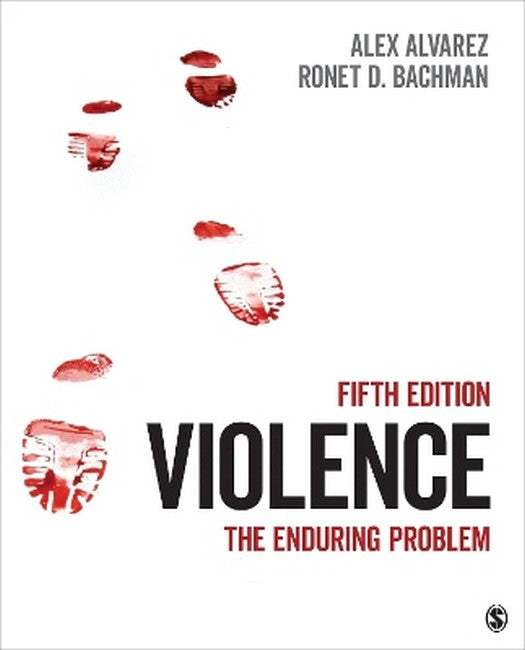Alex Alvarez, PhD, is a professor in the department of criminology and criminal justice at Northern Arizona University. From 2001 until 2003, he was the founding director of the Martin-Springer Institute for Teaching the Holocaust, Tolerance, and Humanitarian Values. In 2017-2018, he served as the Ida E. King Distinguished Visiting Scholar in Holocaust and Genocide Studies at Stockton University. His first book, Governments, Citizens, and Genocide, was published by Indiana University Press in 2001. His other books include Murder American Style (2002), Genocidal Crimes (2009), Native America and the Question of Genocide (2014), and Unsteady Ground: Climate Change, Conflict, and Genocide (2017). He has also served as an editor for the journal Violence and Victims, was a founding coeditor of the journal Genocide Studies and Prevention, and is an editor for Genocide Studies International. He has been invited to speak and present his research across North America and Europe. Ronet D. Bachman, PhD, worked as a statistician at the Bureau of Justice Statistics, U.S. Department of Justice, before going back to an academic career; she is now a professor in the Department of Sociology and Criminal Justice at the University of Delaware. She is coauthor of Statistical Methods for Criminology and Criminal Justice and coeditor of Explaining Criminals and Crime: Essays in Contemporary Criminal Theory. In addition, she is the author of Death and Violence on the Reservation and coauthor of Stress, Culture, and Aggression; Murder American Style; and Violence: The Enduring Problem, along with numerous articles and papers that examine the epidemiology and etiology of violence, with particular emphasis on women, the elderly, and minority populations as well as research examining desistance from crime. Her most recent federally funded research was a mixed-methods study that examined the long-term desistance trajectories of criminal justice involved drug-involved individuals who have been followed with both quantitative and interview data for nearly thirty years. Her current state-funded research is assessing the needs of violent crime victims, especially those whose voices are rarely heard such as loved ones of homicide victims.
Request Academic Copy
Please copy the ISBN for submitting review copy form
Description
Chapter 1: Defining Violence Chapter 2: Why Do We Do It? Chapter 3: Assault and Murder: A Continuum of Violence Chapter 4: Serial, Mass, and Spree Killing Chapter 5: Violence in the Home Chapter 6: Rape and Sexual Assault Chapter 7: Stranger Crime and Street Violence Chapter 8: Hate Crimes Chapter 9: Crowd Violence Chapter 10: Terrorism Chapter 11: Genocide Chapter 12: Towards Violence Prevention

